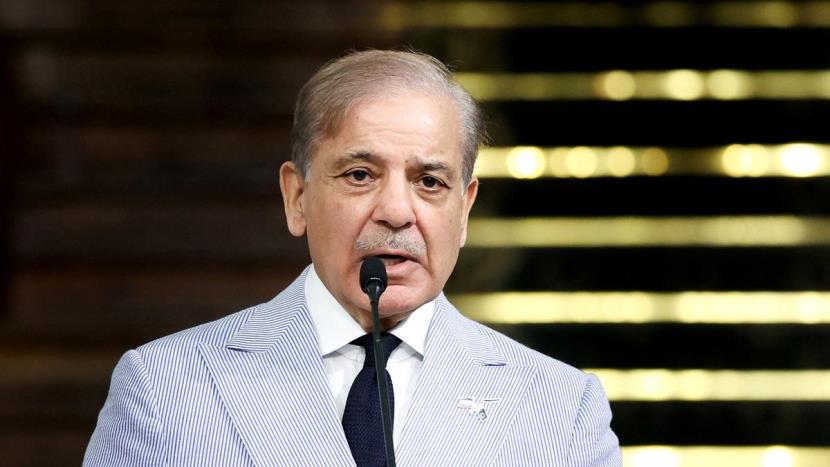Pak PM Sharif rakes up India’s abeyance of Indus Water Treaty at international platform

May 31, 2025
Prime Minister Shehbaz Sharif rejected the "weaponisation of water" and warned that Pakistan would not allow India to cross the red line by holding the Indus Waters Treaty in abeyance and endangering millions of lives for narrow political gains.
Sharif was addressing a three-day International Conference on Glaciers' Preservation in Tajikistan's capital Dushanbe when he raked up the issue of India-Pakistan bilateral Indus Water Treaty (IWT).
"India's unilateral and illegal decision to hold in abeyance the Indus Waters Treaty, which governs the sharing of the Indus Basin's water, is deeply regrettable," Dawn reported quoting Sharif.
"Millions of lives must not be held hostage to narrow political gains, and Pakistan will not allow this. We will never allow the red line to be crossed," the prime minister told the conference attended by over 2,500 delegates from 80 UN member states and 70 international organisations.
The event is being hosted by the Tajikistan government in collaboration with the United Nations, UNESCO, World Meteorological Organisation (WMO), the Asian Development Bank, and other key partners as a historic moment for climate ambition, glacier preservation, and international cooperation.
Sharif's remarks came after India, soon after the April 22 terrorist attack in Pahalgam, announced abeyance of the IWT among other punitive measures. The IWT was signed in 1960 by the two countries to address the water dispute between them and to share the waters of the six main rivers of the Indus basin.
According to Dawn, Sharif also touched upon all relevant issues, including glacial preservation, Pakistan's climate vulnerability, the 2022 floods in Pakistan, global climate action and responsibility, scientific projections on glacial melt, weaponisation of water and call to protect nature and humanity's shared destiny.
"The world today bears fresh scars from the use of conventional weapons in Gaza that have left deep wounds. As if that were not enough, we are now witnessing an alarming new low-the weaponisation of water," the prime minister observed.
He added that Pakistan, being home to over 13,000 glaciers, was the most concerned as glaciers contributed nearly half of the annual flows in the Indus river system "the lifeline of our civilisation, culture and economy".
"The five great rivers that shape our geographical landscape-Indus, Jhelum, Chenab, Ravi, and Sutlej-all depend on the stability of glacial systems. This makes Pakistan one of the most vulnerable countries to any climatic changes that impact glaciers," he continued.
He told the gathering that Pakistan had faced the peril of glacial melt in the form of devastating floods in 2022 that destroyed millions of acres of standing crops, thousands of houses as well as infrastructure - despite the country contributing only less than half a per cent of the total world's emissions and yet being one of the 10 most vulnerable countries.